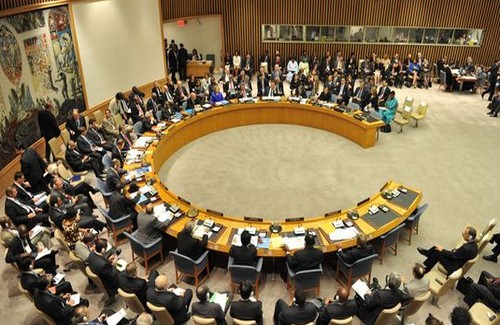The campaign to isolate Iran has been a stunning success
16:22 - 24 January 2012

Before we get to the good news about Iran, let us acknowledge the reality about rogue states and nuclear weapons: Short of ground invasion, there simply is no sure-fire way of preventing a regime from developing nukes. North Korea and Pakistan both endured sanctions and international opprobrium en route to getting the bomb — and Iran ultimately may do the same. Computer viruses and secret assassinations are mere delaying tactics. And a joint American-Israeli bombing campaign might actually accelerate the mullahs’ drive for a nuclear weapon — since history teaches them that nuclear-armed nations don’t get bombed.
Since no one in Washington or Europe has any desire for a ground war in Iran, the West really has only one strategy available to it: Make Iran pay the highest price possible for its nuclear program — in the form of isolation, dead scientists, lost oil revenue, economic chaos — in hopes that (a) Ayatollah Ali Khamenei will blink, or (b) that the resultant economic hardship will fatally destabilize the regime.
This strategy may seem like a long shot. Yet, amazingly, there are signs it is working.
On Monday, the EU — which gets 20% of its oil from Iran — formally adopted an oil embargo against it. The nations of the EU will no longer sign new delivery contracts with Tehran, and existing contracts will become void on July 1. China and other less scrupulous customers will continue to buy oil from Iran, of course. But even Beijing is taking an indirect role in turning the screws — reportedly demanding discounts on Iran’s tainted product.
On the financial side, meanwhile, Iran has become the country that can’t cut a cheque: The EU is freezing the assets of Iran’s central bank, and American sanctions now target not only Iran’s financial institutions, but third parties that do business with them. Iran’s currency is in free fall, and journalists in Tehran are reporting that many banks have simply stopped selling foreign currency.
Earlier this month, Tehran responded to this ratcheting up of pressure by staging war games off its coast, making noises about closing the Strait of Hormuz, and warning American warships not to enter the region. On Monday, Barack Oabama and his European counterparts forcefully called this bluff by sailing the aircraft carrier USS Abraham Lincoln along with a British navy frigate and a French warship through the Strait.
Saudi Arabia, as well, is playing a useful role, assuring the world that it will increase crude production to make up for any shortfall caused by the campaign against Iran. In a Middle East whose geopolitics have become more complex and unpredictable since the Arab Spring, the campaign to contain Iran’s nuclear program is the one issue that consistently has aligned the interests of most Arab nations to the United States and Israel.
In fact, Iran really has only one friend left in the Arab world — Syria, itself a bloody pariah within the Arab League. Many hawks say the West should impose a no-fly zone in Syria, or take other steps to hasten the demise of the Assad regime. Yet, insofar as the larger struggle against Iran goes, the status quo should suit the West just fine: The longer Assad’s regime survives, propped up by Tehran, the more reviled Iran becomes.
Even Hamas — yes, Hamas — has become disgusted with Iran. Last week in Gaza, Hamas gunmen stormed into a gathering of Shiite worshippers and brutalized many of them. “The assault was part of a broader crackdown on Shiite organizations, including charities, that has been sparked in part by Hamas’ fear of growing Iranian influence in Gaza,” reported Haaretz. (Iran still gives money to Hamas, but the amount has been reduced due to the Palestinian group’s refusal to toe the line on Syria.)
Iran still has a few friends, of course — Venezuela, Russia, and the other small handful of nations that reflexively embrace any enemy of Washington. But in its own backyard, Iran is increasingly beleaguered and friendless. Republican presidential candidates can rail all they want about Barack Obama’s foreign policy, but the campaign he has led to isolate Iran has been more successful than most of us dared hope.
Source - National Post
Since no one in Washington or Europe has any desire for a ground war in Iran, the West really has only one strategy available to it: Make Iran pay the highest price possible for its nuclear program — in the form of isolation, dead scientists, lost oil revenue, economic chaos — in hopes that (a) Ayatollah Ali Khamenei will blink, or (b) that the resultant economic hardship will fatally destabilize the regime.
This strategy may seem like a long shot. Yet, amazingly, there are signs it is working.
On Monday, the EU — which gets 20% of its oil from Iran — formally adopted an oil embargo against it. The nations of the EU will no longer sign new delivery contracts with Tehran, and existing contracts will become void on July 1. China and other less scrupulous customers will continue to buy oil from Iran, of course. But even Beijing is taking an indirect role in turning the screws — reportedly demanding discounts on Iran’s tainted product.
On the financial side, meanwhile, Iran has become the country that can’t cut a cheque: The EU is freezing the assets of Iran’s central bank, and American sanctions now target not only Iran’s financial institutions, but third parties that do business with them. Iran’s currency is in free fall, and journalists in Tehran are reporting that many banks have simply stopped selling foreign currency.
Earlier this month, Tehran responded to this ratcheting up of pressure by staging war games off its coast, making noises about closing the Strait of Hormuz, and warning American warships not to enter the region. On Monday, Barack Oabama and his European counterparts forcefully called this bluff by sailing the aircraft carrier USS Abraham Lincoln along with a British navy frigate and a French warship through the Strait.
Saudi Arabia, as well, is playing a useful role, assuring the world that it will increase crude production to make up for any shortfall caused by the campaign against Iran. In a Middle East whose geopolitics have become more complex and unpredictable since the Arab Spring, the campaign to contain Iran’s nuclear program is the one issue that consistently has aligned the interests of most Arab nations to the United States and Israel.
In fact, Iran really has only one friend left in the Arab world — Syria, itself a bloody pariah within the Arab League. Many hawks say the West should impose a no-fly zone in Syria, or take other steps to hasten the demise of the Assad regime. Yet, insofar as the larger struggle against Iran goes, the status quo should suit the West just fine: The longer Assad’s regime survives, propped up by Tehran, the more reviled Iran becomes.
Even Hamas — yes, Hamas — has become disgusted with Iran. Last week in Gaza, Hamas gunmen stormed into a gathering of Shiite worshippers and brutalized many of them. “The assault was part of a broader crackdown on Shiite organizations, including charities, that has been sparked in part by Hamas’ fear of growing Iranian influence in Gaza,” reported Haaretz. (Iran still gives money to Hamas, but the amount has been reduced due to the Palestinian group’s refusal to toe the line on Syria.)
Iran still has a few friends, of course — Venezuela, Russia, and the other small handful of nations that reflexively embrace any enemy of Washington. But in its own backyard, Iran is increasingly beleaguered and friendless. Republican presidential candidates can rail all they want about Barack Obama’s foreign policy, but the campaign he has led to isolate Iran has been more successful than most of us dared hope.
Source - National Post



